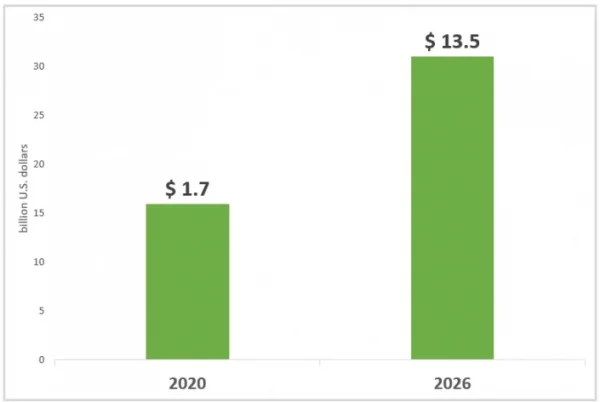COVID-19 pandemic toppled global supply chains in every sector, forcing business owners to relook at the previously accepted methods of conducting business. Since the pandemic has awakened many from their slumber to the reality that future disruptions are both unavoidable and unpredictable, companies are increasingly focusing on technology such as AI and cloud to develop resiliency & flexibility in their supply chains. From idea generation to dispatch and handling deliveries, AI and the cloud are boosting supply chain operations and improving efficiency. Let’s discuss how AI and the cloud will drive supply chain transformation on a large scale in the future.
Issues Faced by Supply chain Professionals
- Limited visibility:
Minimal or zero data can literally make it impossible to see through the supply chain, which can hinder a company from proactively mitigating potential risks. - Volatile and unpredictable demand:
Forecasting future demand using traditional models that depend primarily on historical data can lead to predictions of demand that are way off-target. - Outdated workflows:
Continuing with ineffective and obsolete processes such as entering data manually and operating in silos can lead to missing out on the fast-developing trend. Using outdated workflows can result in higher operating and inventory costs. - Slow organizational responsiveness:
Complicated processes with conflicting goals among various players in the ecosystem can lead to unnecessary costs, delivery delays, and customer dissatisfaction.
How Can Cloud Drive Supply Chain Transformation?
Cloud helps companies modify their processes at each stage of the supply chain, from project planning & sourcing of raw materials to manufacturing the final product, logistics, delivery, developing new insights for decision-making, and automating tasks wherever possible. It helps build stronger, smarter supply chains. Cloud helps build a connected, scalable, intelligent, and rapid supply chain, which brings various benefits like visibility, agility, resiliency, and flexibility across sectors.
Based on the quick realization of cloud computing perks, the global SaaS-assisted SCM market depth is expected to boom from $ 3.3 billion in 2019 to $ 5.62 billion by 2025, at 14.2% CAGR in the forecast duration of 2020-25. These figures showcase how companies increasingly depend on cloud-based solutions to transform their supply chain operations.
How Can AI Drive Supply Chain Transformation?
Artificial intelligence (AI) is a go-to technology that makes every type of industry smarter and more resilient. As a result, the AI global supply chain market has projections to reach $13.5 billion around 2026.
Global AI supply chain market-2020-2026

Global AI supply chain market-2020-2026
Here are the top 4 AI applications that can transform the supply chain
- Supply chain automation
Modern supply chain automation cannot work without Artificial Intelligence. AI brings supply chain-specific automation technologies like warehouse robots, digital workers, automatic vehicles, RPA, etc. These devices have the capability to execute repetitive, semi-technical, and error-prone tasks automatically. Top companies like Amazon, Nuro, Tusimple, etc., have extensively made substantial investments in transport automation technologies like autonomous trucks. - Accurate predictive analytics and forecasting
Supply chain managers are constantly scratching their heads to predict the future regarding market trends, demand, etc. Although no prediction is a sure shot, leveraging AI can help managers make better and closer to reality predictions. AI-assisted demand forecasting apps can drastically improve forecast accuracy. For example, the global furniture tycoon Ikea has built a demand forecasting tool that operates on AI, which utilizes historical and fresh data to provide precise demand forecasts. - Computer vision used in supply chains
AI-assisted computer vision systems are also transforming supply chain operations. From boosting quality control to better inventory management, computer vision has numerous applications in supply chain optimization. Ex: AI-assisted computer vision systems have the ability to automate & elevate the quality assurance of final products. The auto giant BMW utilizes computer vision to scan their car models as they move within the assembly line. - Improving sustainability
Sustainability is a major concern of the supply chain management team since most of a company’s emissions are generated via the supply chain. AI can help to improve supply chain operations to make them more sustainable and environmentally friendly. For example, AI can assist in optimizing logistics routes to minimize fuel consumption. UPS’s program does exactly that by utilizing AI/ML models. AI can also be utilized for accurate demand forecasting that can result in inventory level optimization, waste, & carbon emissions throughout the supply chain.
Conclusion
The science of supply chain management is evolving on a daily basis. Leveraging cloud and AI technologies to their full potential can help companies can become much better prepared for tackling any supply chain bottlenecks coming their way.
